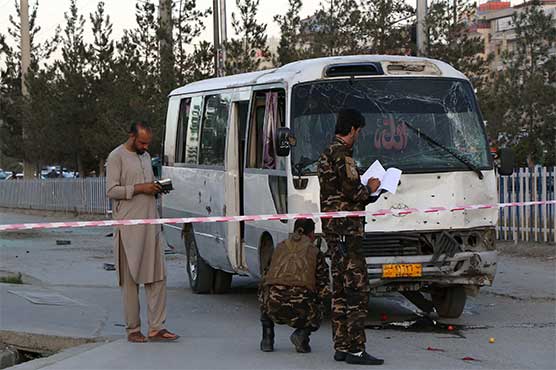UN decries attacks on Afghan media at time when dialogue needed most

The voices of human rights defenders and the media are critical for any open and decent society
KABUL (Reuters) - The United Nations on Monday denounced attacks on Afghan journalists and human rights activists at a time when dialogue was needed more than ever amid talks to try to end two decades of war.
The Afghan government and Taliban militants began peace talks in Doha last September, but negotiations have largely stalled. Washington is reviewing a deal that would have seen Western troops leave the country by May.
“The Afghan people need and deserve a flourishing civic space - a society where people can think, write and voice their views openly, without fear,” said Deborah Lyons, the UN Secretary-General’s Special Representative for Afghanistan.
“The voices of human rights defenders and the media are critical for any open and decent society."
Between Jan. 1, 2018, and Jan. 31, 2021, 65 human rights defenders and media professional were killed, the UN report said. Five human rights activists and six journalists were killed in the four months after the peace talks began.
Afghanistan is experiencing a new wave of "intentional, premeditated and deliberate targeting of individuals with perpetrators remaining anonymous", prompting professionals to quit their jobs and leave their homes, and journalists to exercise self-censorship.
Many of the attacks involve small improvised explosives called "sticky bombs," which are typically attached to the underside of vehicles.
Few have ever been claimed by any warring party, although the government has said the Taliban are responsible. The group says it only targets government officials.
The Taliban, who ruled Afghanistan from 1996 to 2001, are seeking to topple the Western-backed government in Kabul and reimpose Islamic rule.
Islamic State militants also operate in Afghanistan, and government officials have said they have ties to the Taliban, another charge the Taliban denies.
Afghanistan s spy agency said it broke up two cells in the past week in Kabul that were jointly operating between Islamic State and the Taliban-linked Haqqani network. It said they were responsible for assassinations of officials and activists and rocket attacks in the capital.

